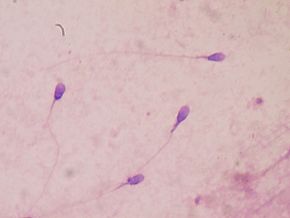 The researchers of this study looked at proximity to farm fields (how close a pregnant woman lives to a farm) and certain farm pesticides and found a link between exposure to farm pesticides during pregnancy and having a child with autism. But too bad they didn't also include pesticide exposures from homes (for pest control), gardens, and yards which would have given a more accurate measure of total exposure. However, it's a start. From Science Daily:
The researchers of this study looked at proximity to farm fields (how close a pregnant woman lives to a farm) and certain farm pesticides and found a link between exposure to farm pesticides during pregnancy and having a child with autism. But too bad they didn't also include pesticide exposures from homes (for pest control), gardens, and yards which would have given a more accurate measure of total exposure. However, it's a start. From Science Daily:
Association found between maternal exposure to agricultural pesticides and autism
Pregnant women who lived in close proximity to fields and farms where chemical pesticides were applied experienced a two-thirds increased risk of having a child with autism spectrum disorder or other developmental delay, a study by researchers with the UC Davis MIND Institute has found. The associations were stronger when the exposures occurred during the second and third trimesters of the women's pregnancies.
The large, multisite California-based study examined associations between specific classes of pesticides, including organophosphates, pyrethroids and carbamates, applied during the study participants' pregnancies and later diagnoses of autism and developmental delay in their offspring. It is published online in Environmental Health Perspectives. "... the message is very clear: Women who are pregnant should take special care to avoid contact with agricultural chemicals whenever possible."
California is the top agricultural producing state in the nation, grossing $38 billion in revenue from farm crops in 2010. Statewide, approximately 200 million pounds of active pesticides are applied each year, most of it in the Central Valley, north to the Sacramento Valley and south to the Imperial Valley on the California-Mexico border. While pesticides are critical for the modern agriculture industry, certain commonly used pesticides are neurotoxic and may pose threats to brain development during gestation, potentially resulting in developmental delay or autism.
The study was conducted by examining commercial pesticide application using the California Pesticide Use Report and linking the data to the residential addresses of approximately 1,000 participants in the Northern California-based Childhood Risk of Autism from Genetics and the Environment (CHARGE) Study. The study includes families with children between 2 and 5 diagnosed with autism or developmental delay or with typical development. "We mapped where our study participants' lived during pregnancy and around the time of birth. In California, pesticide applicators must report what they're applying, where they're applying it, dates when the applications were made and how much was applied," Hertz-Picciotto said. "What we saw were several classes of pesticides more commonly applied near residences of mothers whose children developed autism or had delayed cognitive or other skills."
Organophosphates applied over the course of pregnancy were associated with an elevated risk of autism spectrum disorder, particularly for chlorpyrifos applications in the second trimester. Pyrethroids were moderately associated with autism spectrum disorder immediately prior to conception and in the third trimester. Carbamates applied during pregnancy were associated with developmental delay.
Exposures to insecticides for those living near agricultural areas may be problematic, especially during gestation, because the developing fetal brain may be more vulnerable than it is in adults. Because these pesticides are neurotoxic, in utero exposures during early development may distort the complex processes of structural development and neuronal signaling, producing alterations to the excitation and inhibition mechanisms that govern mood, learning, social interactions and behavior.


 The researchers of this study looked at proximity to farm fields (how close a pregnant woman lives to a farm) and certain farm pesticides and found a link between exposure to farm pesticides during pregnancy and having a child with autism. But too bad they didn't also include pesticide exposures from homes (for pest control), gardens, and yards which would have given a more accurate measure of total exposure. However, it's a start. From Science Daily:
The researchers of this study looked at proximity to farm fields (how close a pregnant woman lives to a farm) and certain farm pesticides and found a link between exposure to farm pesticides during pregnancy and having a child with autism. But too bad they didn't also include pesticide exposures from homes (for pest control), gardens, and yards which would have given a more accurate measure of total exposure. However, it's a start. From Science Daily: